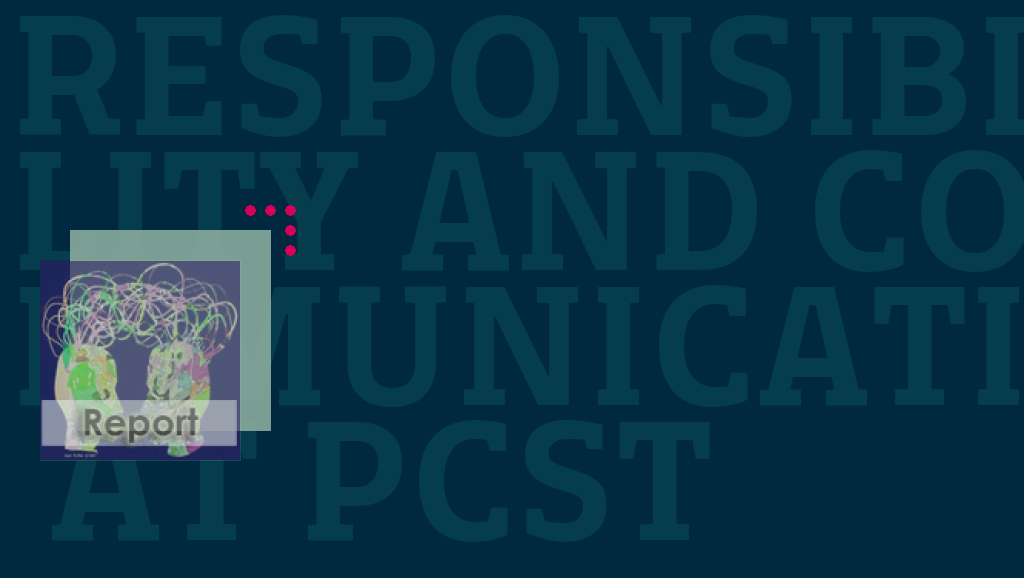In Florence on 20th April 2012 the Bassetti Foundation organized a seminar as part of the Public Communication of Science and Technology Conference (PCST2012). This international conference hosted scientists, delegates from scientific institutions, researchers and journalists. What follows is a review of the papers and video of the seminar.
Index
Part 1. (previous post)
Introduzione, Gail Edmondson, Alexander Gerber, video
Part 2. (this post)
Debate and Franca Davenport (video), Ann Grand and debate (video)
photographs
Franca Davenport, Science writer, Science for environment Policy (SfEP)
Walking the ethical tightrope between science and policy
A good communication of science and technology must allow policy makers to understand the most relevant aspects of the research and give them the instruments to make decisions based upon data (evidence based decisions), but must also be responsible in order to avoid false interpretations. In carrying out this work we run 2 risks: that of communicating in a way that is either not useful or inefficient for the policy maker in the case of using language that is too technical, and that of simplifying the concepts too much, leaving too much space for misinterpretation.
The communication of science connects the scientific system to the political system, and this relationship is the object of Franca Davenport’s research within the SfEP. Her research is conducted through interviews, is still in its infancy and revolves around 3 interdisciplinary themes that are of great interest to political decision-makers, namely biodiversity and health, plastic waste, and green infrastructure. Early data emerging from the interviews suggests that there is an overlap of the fields of interests of scientists and politicians in that there are scientists that offer consultancy for politicians, policy-makers with a technical education and so forth.
Policy-makers use scientific information both for purely informative needs and for short and long term political planning, and ask scientists to present them with clear, accurate, exhaustive, objective and not too complex answers based upon quantitative data. From many points of view scientists understand what politics requires from them, but believe that policy makers are looking for data that supports the political line that they follow and do not want alarming or uncertain data.
Placing itself between these two fields, the communication of science runs various risks: that information may be too generic and the technical data cited out of context; that the information is distorted by the various passages between the political hierarchy and the general public; that the uncertainty of the science is not communicated in the correct way and so on. Sometimes scientists have pointed out that results that are simple to communicate but uncertain (or supported by insufficient proof) are made by politicians, due to the very fact that they are easily understood.
Dialogue and participation can reduce the risks of communication, as can collaboration between researchers and policy makers in the initial phases of a political plan. One key point according to Davenport, is the need for a better communication of the uncertainty of scientific data.
There is however a good understanding for the need for a systematic approach that involves scientists, communicators and policy-makers and within which responsibility must necessarily be shared.
Bellow is the video of the second part and to follow on this page the paper by Ann Grand and related video.
Ann Grand, University of the West of England
«It feels like the right thing to do»: Ethical perspectives of open science
Real open science does not just make its data and results public. The concept is in fact much broader, and in an open scientific project the entire process must be accessible, from how to pose the question to the methods used, where the funding comes from and so on. In allowing access to every phase of the project, open science means that the public also become participants in the non-successes of the research, giving them a rounded vision of the entire scientific process.
There is presently a growing demand for access to data, and like it or not science is becoming ever more open. Also those who fund the research projects demand ever more transparency from the researchers, and many scientists accept and understand the need to work in an open way, considering it ethically right to do so. The ethics of open science is visible on many levels. For example researchers who work in an open way argue that it is correct to be transparent with the public, who at the end of the day finance their activity or are at least influenced by it. Furthermore they know that transparency generates credibility, and that this brings with it greater responsibility.
Some obstacles do exist for a wider spread of open science however. Amongst these we find the conflict between the publication of data and commercial needs that require secrecy, and questions related to national security (as argued in the USA for example). Furthermore the fact that open science is not reviewed by other scientists before it is communicated or results released is criticized (unlike the classic model that used peer review). This said, Grand believes that a completely open system is able to discriminate between good and bad science by itself, as long as the researchers are willing to supply the instruments that enable the public to interpret the results. Broadly speaking, the adoption of an open approach favours the quality of the research, its honesty, replicability and ethics.
Below find the video of the third part of the session
——————–
(Image: Communication by Joan M. Mas (DailyPic) from Flickr – modified)
















